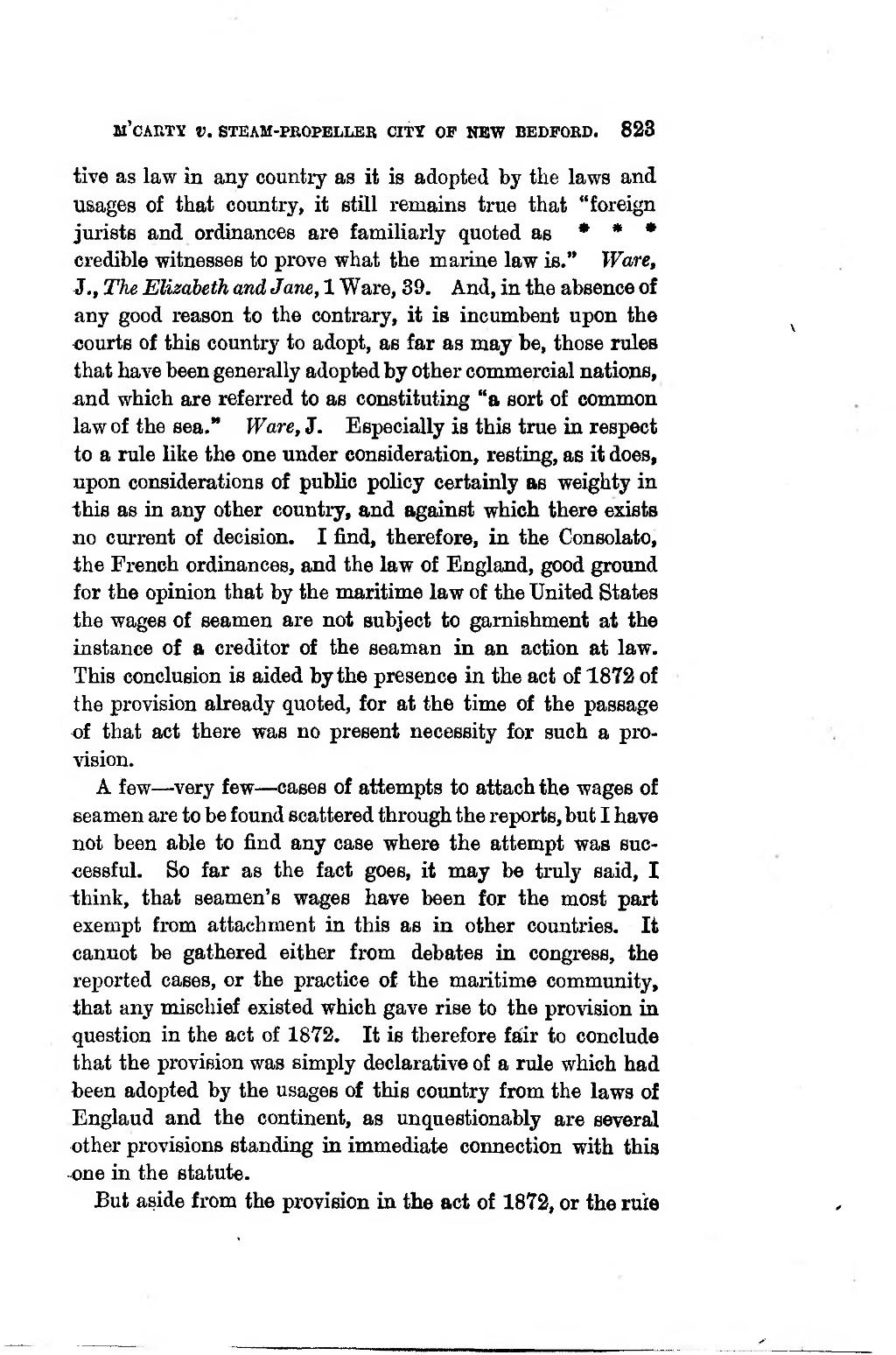U'CARTÏ V. STEAM-PKOPBLLEB OITY OF NEW BEDFOED. 823 �tive as law in any country as it is adopted by the laws and usages of that country, it still remains true that "foreign jurists and ordinances are familiarly quoted as * * * credible wituesses to prove what the marine law is." Ware, J,, The Elizdbeth and Jane, 1 Ware, 39. And, in the absence of any good reason to the contrary, it is incumbent upon the «ourts of this country to adopt, as far as may be, those rules that have been generally adopted by other commercial nations, and which are referred to as constituting "a sort of common law of the sea." Ware, J. Especially is this true in respect to a rule like the one under consideration, resting, as it does, upon considerations of public policy certainly as weighty in ihis as in any other country, and against which there exists no current of decision. I find, therefore, in the Consolato, the Frenoh ordinances, and the law of England, good ground for the opinion that by the maritime law of the United States the wages of seamen are not subject to gamishment at the instance of a crediter of the seaman in an action at law. This conclusion is aided by the presence in the act of 1872 of the provision already quoted, for at the time of the passage of that act there was no present necessity for such a pro- vision. �A f ew — very few — cases of attempts to attach the wages of seamen are to be found scattered through the reports, but I have not been able to find any case where the attempt was suc- cessful. So far as the fact goes, it may be truly said, I think, that seamen's wages have been for the most part exempt from attachment in this as in other countries. It cannot be gathered either from debates in congress, the reported cases, or the practice of the maritime community, that any mischief existed which gave rise to the provision in question in the act of 1872. It is therefore fa,ir to conclude that the provision was simply declarative of a rule which had been adopted by the usages of this country from the laws of England and the continent, as unquestionably are several other provisions standing in immediate connection with this one in the statute. �But aside from the provision in the act of 1872, or the ruie ����
Page:Federal Reporter, 1st Series, Volume 4.djvu/837
This page needs to be proofread.
